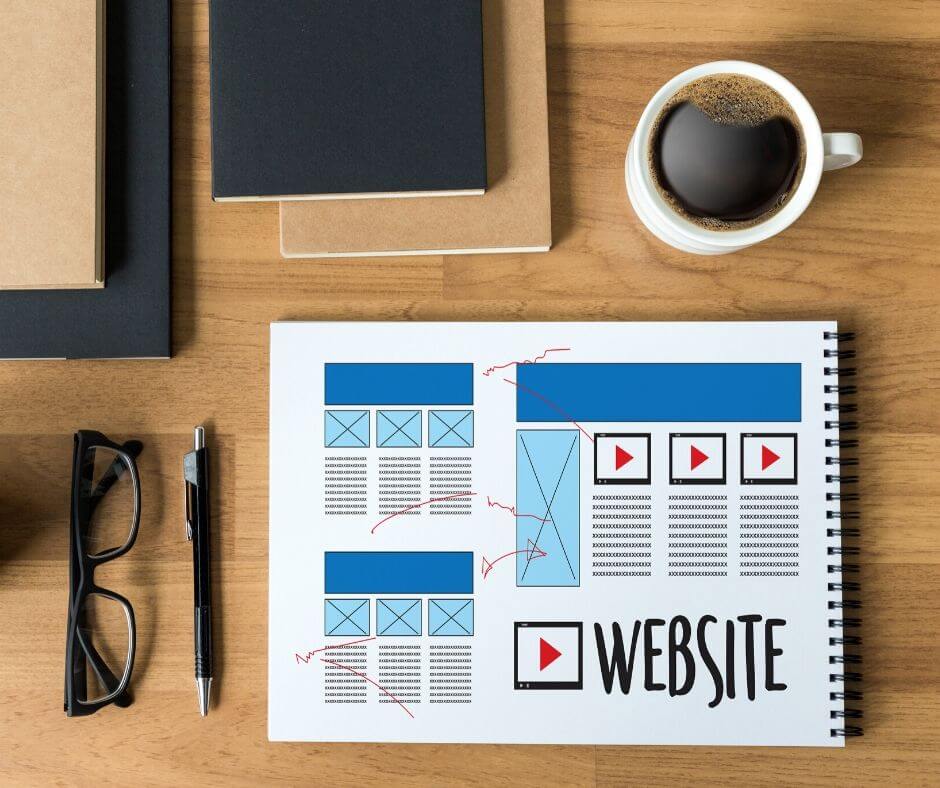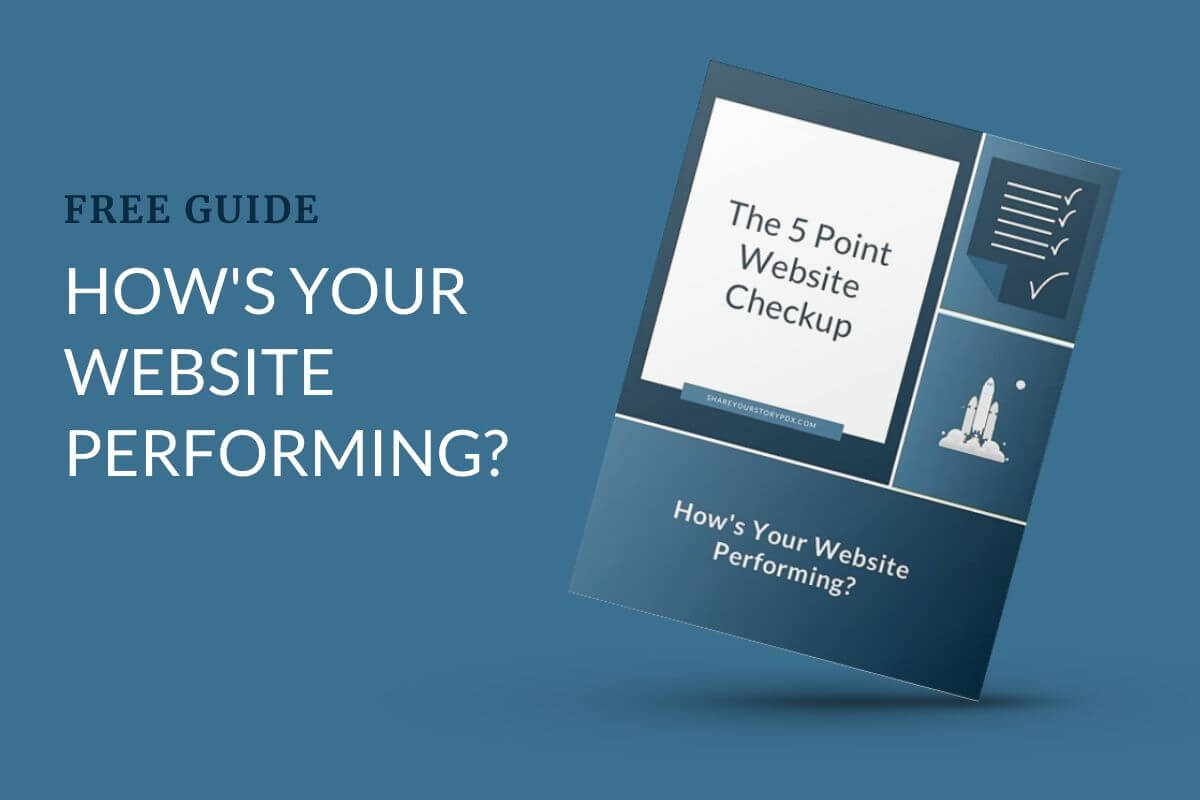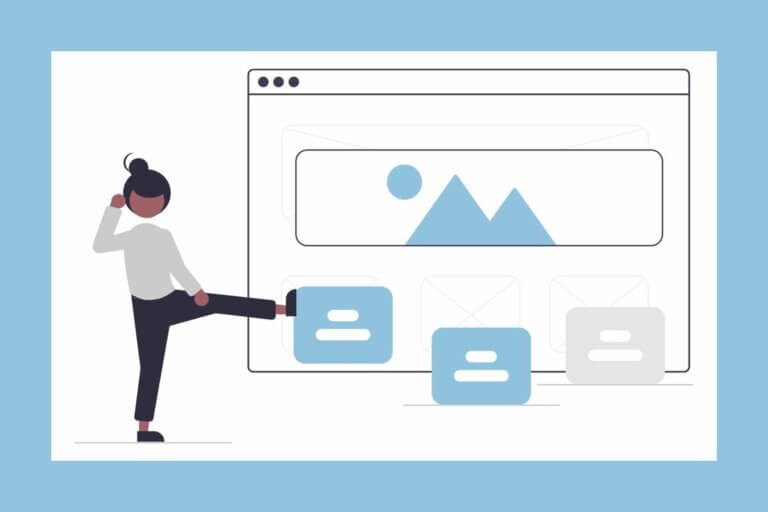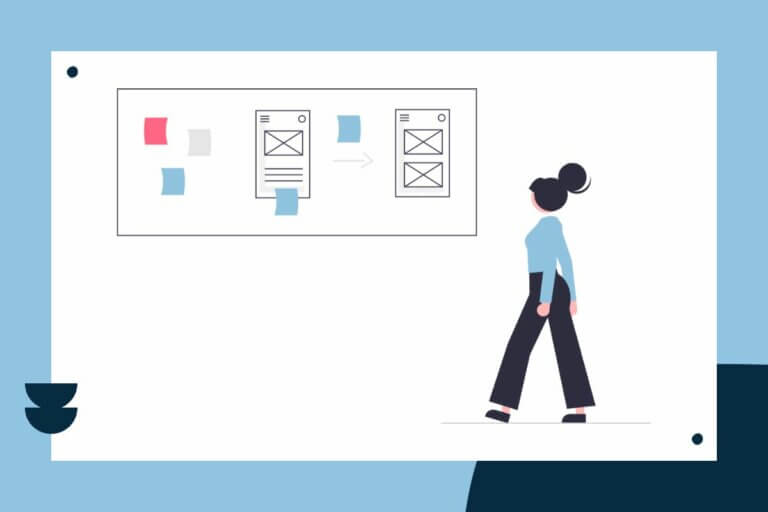The Common Website Mistakes People Make
Over the last few years I’ve seen some big common mistakes people make with their websites. In fact, most people will make at least one of these mistakes at some point. I know I have.
But, if you can avoid making these mistakes, your website will be one big step ahead of most of your competition.
So what are these common website mistakes?
- You don’t understand your business before you build your website.
- You build your website for yourself.
- You believe that if you build a website, people will come.
So let’s dig in and learn how to fix them!

Understand Your Business
I’ve seen a lot of people launch their websites without really understanding what their business does or who it serves. Unfortunately, it’s hard to create an effective website this way.
Your website is a marketing tool for your business. In order to properly market your business, you need to first understand what that business is. You can’t sell something when you really don’t know what it is.
What you should know about your business before you build a website
The main job of the website is to let visitors know you can help them. In order to do that, you need to know what you and your business do.
What is your service or product?
First, you need to know what your service is or what your product is. Your service or product may seem obvious to you. But, can you explain them easily to someone else?
If someone asked you to describe each of your services in 2 – 3 sentences, could you do that? Would you do that consistently over time?
Ideally, you have short 2 – 3 sentence descriptions that clearly describe each of your services and products.
Who do you serve?
Second, it’s just as important to know who your clients are. Who are you helping? If you think you’re helping anyone and everyone, that’s probably too vague.
It you try to appeal to everyone, you will likely appeal to no one. Believe it or not, it’s much easier to market to a specific, well defined audience than to a vague collection of people.
Start thinking about the common threads that hold your customers or your ideal clients together. Also, you can check out my post, Increase Your Impact Online With An Ideal Client Persona.
What problems do you solve?
Third, you should understand the problems you solve for your ideal clients. Again, your website’s main job is to let site visitors know you can help them solve a problem they’re having. So, you need to understand what those problems are before you can share how you solve them.
Once you know who your ideal client is, then think about the problems they face, and how you help them solve those problems.
You can start this process by just making a simple list of the problems you help people with. Then, you can try to associate each of those problems to one of your products or services.
What are your processes?
Fourth, you need to understand your own business processes. Often, business owners play it by ear and make it up as they go along. And, they could be very successful doing this. But, when someone visits your website, they want to know that you have a simple plan to help them.
So, you want to be able to articulate to your website visitor what that plan is. If you can do that, you can start building trust with your site visitors. Then, they will start to think that you are the person who can help them with their problem or reach their goal.
Your Website Is For Your Audience
Like it or not, your website is not for you. Your website is for your audience. So, when building your website, you want to think about your potential clients first.
Remember, you are not the hero of your website. Your client is. You are the guide leading them along their journey towards finding the answers they seek. (You can learn how to tell your buyer’s story here.)
Visitors come to your website because they are looking for answers to problems they face. If your website appeals to them, it’s more likely to resonate with them and build trust.
So, when designing your website, try to keep these things in mind:
- Think about what information your ideal clients needs to see first in order to understand that you can help them solve their problems.
- Avoid fancy automation and features that make the website hard to navigate or that distract the visitors from getting the answers they are seeking.
- Talk directly to your site visitor. Show you understand their problem and how they are feeling.
- Avoid using jargon and long-winded narratives about yourself or the fancy features of your service. Instead, talk about the benefits your audience will get by working with you, and show that you have a plan to get them to their goal.
If You Build It, They Will Not Necessarily Come
A website is a powerful tool for growing your business. But like any tool, you need to use it to see the benefits.
I think a lot of people still mistakenly believe that stuffing a website with some magical keywords means the website will get found. Or, that the website will show up on the first page of Google. Unfortunately, those days are gone, if they ever even existed.
These magical keywords are technically known as meta keywords, and Google doesn’t really care about them. Google will not link to your site just because you use the right keywords.
This article by Yoast SEO discusses the demise of the meta keyword. As it points out, meta keywords are mostly a waste of time. They just simply don’t matter that much to the search engines.
Google and the other search engines exist to provide answers to people. They use fancy algorithms that consider all sorts of visitor behavior to determine page ranking order. To rank higher in Google, you need people to not only find your website with a search, but to click to your website and stay on your website.
Content marketing is the answer – not keywords
Your website needs to have the content that answers the questions your potential clients are asking. As Neil Patel points out in Why SEO Is Actually All About Content Marketing, content marketing is a key part of having a good SEO strategy. Without it, your website will likely not perform the way you want it to.
So yes, you’re going to have to write some content or pay someone else to write content for you. And, you’re also going to have to get the technical aspects of SEO right, too. This means using the proper meta tags and website structure that help the search engines understand what your content is about.
Content Marketing and SEO are a long game. So when you first get started, you need to promote your website if you want to get some attention and start to build your search rankings quickly.
You can promote your website in a lot of ways:
- Advertise on Google or on social media.
- Share your content on social media and in your email marketing.
- List your website on online directories.
- Have a robust Google My Business Profile.
You Can Avoid These Common Website Mistakes
As you’ve learned here, the more you understand your about business and your clients, the more effective your website will be. So, I recommend you take the time to flesh out your business before you launch your website.
Of course, our businesses always morph and change over time. So, we need to keep our websites updated as those changes occur.
Also, building your website is just the first step in building your online presence. You need to use your website and promote your website for it to reach its potential. With good content and a way to get the word out about your website, it will have a better chance of standing out against your competition.

The Five Point Website Checkup
Download this free guide and learn how to evaluate your website’s performance.

